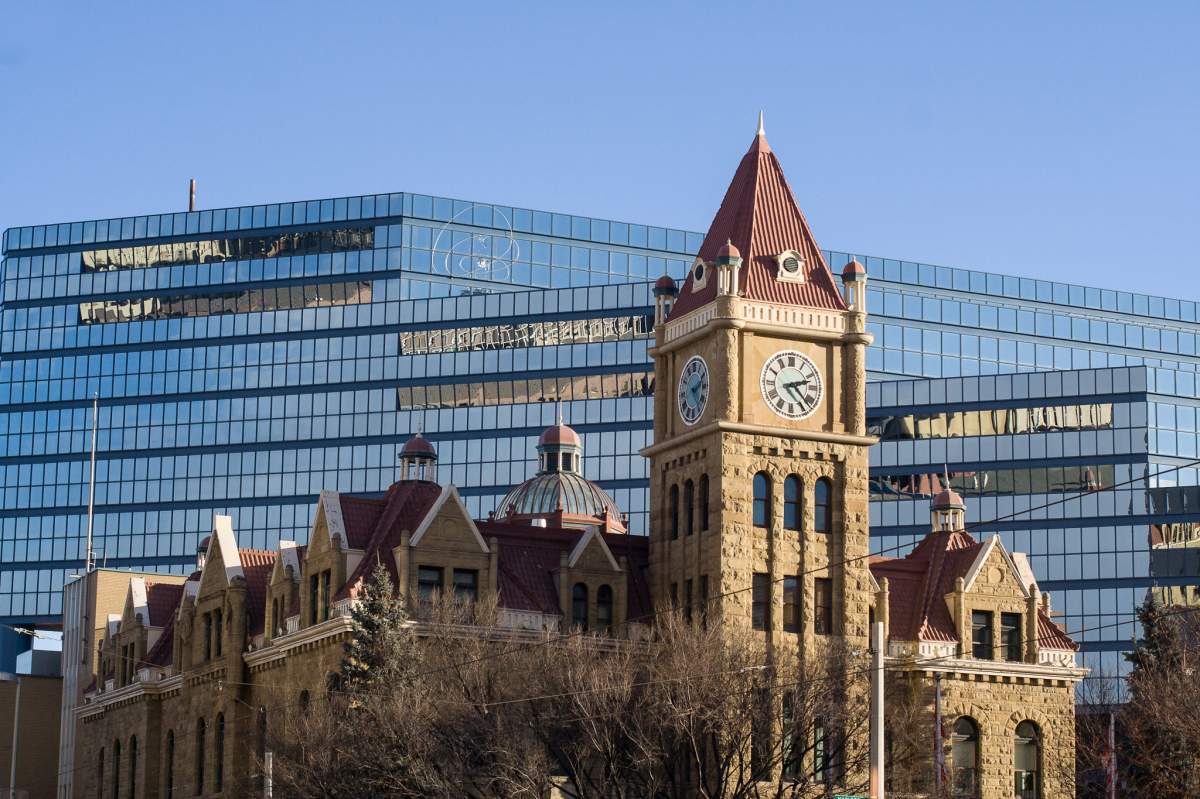Calgary city council is looking at ways of reducing the amount of time it spends behind closed doors.

A review of one year’s-worth of council and committee meetings found that 14 per cent of time was spent in closed session.
The reasons are usually valid — land items where prices of sale or purchase are discussed, labour negotiations and other personnel matters are some of the items that sends the municipal politicians out of the public eye.
The Priorities and Finance Committee dealt with the matter on Tuesday.
Several proposals will be going to city council in a couple of weeks, including whether a person should be able to challenge the move to an in-camera session, the possibility a councillor could bring an advisor into the meetings and allowing the city clerk to keep the meeting on track when discussions go off topic.
Mayor Naheed Nenshi admits conversations go off the rails.

Get daily National news
“Absolutely and it does happen,” he said. “The chair, which is often me, needs to do a better job of reining people in as does the clerk and administration.”
- Real Canadian Superstore fined for ‘misleading’ Product of Canada displays
- ‘No reason to continue discussing’: Ontario mayor wants Andrew’s name dropped
- Danielle Smith promises Alberta referendum over immigration, Constitution changes
- Read the transcript of Trump’s response to U.S. Supreme Court tariff ruling
A report to the committee shows that, of 104 council and committee meetings between May 2017 and May 2018, 306 agenda items — or about one-fifth of the 1,480 total items — were discussed in private. That is more than many other cities in Canada.
However, the mayor says that’s because Calgary city council gets to hear a lot more information than council’s do in other municipalities.
“For example, council gets advance notification of personnel changes that are fully in the purview of the city manager, but we feel it’s important that council knows what the city manager is thinking about,” Nenshi said. “We have strategy sessions that we never had before.”
Nenshi says there were also three major items that required council going behind closed doors — the Green Line LRT project, City Charter negotiations with the province and the Olympics.
Councillor Shane Keating is concerned that a lot of misinformation is being put out in public by some council members about in-camera sessions and that there should be a way to debunk what he calls the “woefully incorrect” statements.
“I’m thinking about something that has to be done. We actually have a statement that comes out that says, ‘That statement by so and so is absolutely incorrect.’ We need that because of the weaponized misinformation that’s being used over and over again.”












Comments
Want to discuss? Please read our Commenting Policy first.